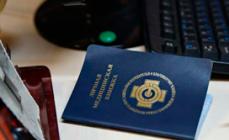In the old good formula H 2 O, it would seem that no secrets are concluded. But in fact, water is the source of life and the most famous liquid in the world - a lot of mysteries in themselves, which sometimes not at the power to solve even scientists.
Before you 5 most interesting facts About water:
1. Hot water freezes faster cold
Take two tanks with water: in one nallem hot, and to another cold water, and put them in the freezer. Hot water will freeze faster cold, although cold water should turn into ice on the logic of things: after all, it is necessary to cool hot water to cool to the temperature cold, and then it is not necessary to cool into ice, while cold water does not need to cool. Why is it going on?
In 1963, Erasto B. Mpemba (Erasto B. MPEMBA), high school student high School In Tanzania, freezing the prepared mixture for ice cream noticed that the hot mixture was frozen in the freezer faster than cold. When the young man shared his discovery with physics teacher, he only laughed at him. Fortunately, the student was persistent and convinced the teacher to conduct an experiment, which confirmed its discovery: under certain conditions hot water It really freezes the fastest cold.
Now this phenomenon of hot water freezing faster than cold, is called "MPEMBA effect". True, for a long time, this unique property of water was noted by Aristotle, Francis Bacon and Ren Decartet.
Scientists so fully and do not understand the nature of this phenomenon, explaining it either by the difference in the supercooling, evaporation, the formation of ice, convection, or the impact of discovered gases on hot and cold water.
Note from X.Ru to the topic "Hot water freezes faster than cold."
Since the cooling issues, we, refrigerators are closer, then let themselves go into the essence of this problem and give two opinions about the nature of such a mysterious phenomenon.
1. A scientist from Washington University proposed an explanation of a mysterious phenomenon known since the times of Aristotle: why hot water freezes faster than cold.
The phenomenon that received the name of the effect of the MPEMBA is widely used in practice. For example, experts advise motorists to pour in winter in the washer tank cold, and not hot water. But what underlies this phenomenon, it remained unknown for a long time.
Dr. Jonathan Katz (Jonathan Katz) from Washington University investigated this phenomenon and came to the conclusion that an important role in it was played by dissolved substances that are deposited in water, which are deposited, reports EUREKALER.
Under dissolved substances Dr. Katz implies calcium and magnesium bicarbonates, which are contained in rigid water. When the water is heated, these substances are deposited, forming a scale on the walls of the kettle. Water that has never heated contains these impurities. As it freezes and the formation of ice crystals, the concentration of impurities in water increases 50 times. Because of this, the water freezing point is reduced. "And now water should still cool to frozen," explains Dr. Katz.
There is a second reason that prevents the freezing of non-heated water. A decrease in water freezing point reduces temperature differences between solid and liquid phases. "Because the speed with which water loses heat depends on this temperature difference, water that has not been heated, cool worse," comments Dr. Katz.
According to the scientist, its theory can be verified experimentally, because The effect of the MPEMBA becomes more noticeable for more rigid water.
2. Oxygen plus hydrogen plus cold generate ice. At first glance, this transparent substance seems very simple. In reality, the ice pays a lot of riddles. Ice, created by African Erasto Mpemba did not think about glory. Stood hot days. He wanted fruit ice. He took the packaging of juice and put it in the freezer. He made it more than once and therefore noticed that especially fast juice freezes if it was for it to hold it on the sun - to rolled it! It is strange, I thought a Tanzanian schoolchild, who arrived in the way of everyday wisdom. Does liquid turn into ice to be faster to ice, it is necessary to pre-warm it? The young man was so surprised that he shared his guess with the teacher. He reported the curiosity in print.
This story happened in the sixties of the last century. Now the "MPEMBE effect" is well known to the scientist. But for a long time, this as if a simple phenomenon remained a mystery. Why is hot water freeze faster than cold?
Only in 1996 the physicist David Auerbach found a solution. To answer this question, he spent the experiment for a whole year: heated water in the glass and cooled it again. So, what did he find out? When heated, air bubbles dissolved in water are destroyed. Water devoid of gases is easier to accompanse on the walls of the vessel. "Of course, water with a high air content will also freeze," says Auerbach, "but not at zero degrees Celsius, but only with minus four-six degrees." It is clear, waiting for longer. So, hot water freezes before cold, it is a scientific fact.
There is hardly a substance that arose before our eyes with the same ease as ice. It consists only of water molecules - that is, elementary molecules containing two hydrogen atoms and one - oxygen. However, ice, perhaps the most mysterious substance in the universe. Some of his properties scientists have never managed to explain.
2. Supercoiling and "Instant" freezing
Everyone knows that water always turns into ice when cooling to 0 ° C ... Except for some cases! Such a case, for example, is "supercoiling", which is a property of very clean water to remain liquid, even being cooled to a temperature below the freezing point. This phenomenon becomes possible due to the fact that environment It does not contain centers or cores of crystallization that could provoke the formation of ice crystals. And therefore water remains in liquid form, even being cooled to a temperature below zero degrees Celsius. The crystallization process can be triggered, for example, gas bubbles, impurities (contaminants), an uneven surface of the container. Without them, water will remain in liquid state. When the crystallization process starts, you can observe how ultra-plate water is instantly turning into ice.
Look at the video (2 901 kb, 60 c) from Phil Medina (www.mrsciguy.com) and see for yourself \u003e\u003e
Comment. Highly pump water also remains liquid, even being heated to the temperature above the booster point.
3. "Glass" water

Quickly and without thinking, name how many different states have water?
If you answered three (solid, liquid, gaseous), then you are mistaken. Scientists identify at least 5 different states of water in liquid form and 14 ice states.
Remember the conversation about super-acted water? So, whatever you do, at a temperature of -38 ° C, even the cleanest ultra-plate water suddenly turns into ice. What happens with further decrease
temperatures? At -120 ° C with water, something strange begins with water: it becomes ultra-plate or dirt, as a pattern, and at temperatures below -135 ° C - turns into a "glass" or "vitreous" water - a solid in which there is no crystalline structure.
4. Quantum properties of water
At the molecular level, the water is even more surprising. In 1995, scientists conducted by scientists the neutron scattering experiment gave an unexpected result: physicists found that neutrons aimed at water molecules "see" 25% less than hydrogen protons than expected.
It turned out that at the speed of one Attestocenda (10-18 seconds) there is an unusual quantum effect, and the chemical formula of water instead of the usual one - H 2 O, becomes H 1.5 o!
5. Does water have a memory?
 Homeopathy, alternative to official medicine, argues that a diluted solution of the drug may have a healing effect on the body, even if the dilution coefficient is so large that nothing else remains in the solution, except for water molecules. Proponents of homeopathy explain this paradox with the concept called "Memory of Water", according to which water at the molecular level has "memory" about the substance, once in it dissolved and retains the properties of the initial concentration solution after it does not remain any ingredient molecule.
Homeopathy, alternative to official medicine, argues that a diluted solution of the drug may have a healing effect on the body, even if the dilution coefficient is so large that nothing else remains in the solution, except for water molecules. Proponents of homeopathy explain this paradox with the concept called "Memory of Water", according to which water at the molecular level has "memory" about the substance, once in it dissolved and retains the properties of the initial concentration solution after it does not remain any ingredient molecule.
An international group of scientists led by Professor Madeline Ennis (Queen "from the Royal University in Belfast (Queen" S University of Belfast), criticized the principles of homeopathy, in 2002 he conducted an experiment to refute this concept once and for all. The result turned out to be reverse. After What, scientists declared that they managed to prove the reality of the effect of "memory of water". However, the experiments conducted under the supervision of independent experts did not bring results. Disputes on the existence of the phenomenon of "Memory of Water" continue.
Water has many other unusual properties that we have not talked about this article.
Literature.
1. 5 Really Weird Things ABOUT WATER / http://www.neatorama.com.
2. The mystery of the water: the theory of the effect of Aristotle-Mpemba is created / http://www.o8ode.ru.
3. Non-disconnecting N.N. Secrets inanimate nature. The most mysterious substance in the universe / http://www.bibliotekar.ru.
The British Royal Chemical Society offers a reward in 1 thousand pounds of sterling to the one who can explain from a scientific point of view why in some cases hot water freezes faster than cold.
"Modern science still can not answer this simple look at the question. The producers of ice cream and bartenders use this effect in their daily work, but no one really knows why it works. This problem has already been known for thousands of years, such philosophers as Aristotle and Descartes have thought about it, "said the President of the British Royal Chemical Society, Professor David Philips, the words of which are given in the public press release.
How cooks from Africa defeated the British professor of physics
This is not a primarial joke, but harsh physical reality. The current science, with ease of the galaxies and black holes, building gigantic accelerators to search for quarks and bosons, cannot clarify how the elementary water "works". The school textbook unequivocally claims that it takes more time to cool the more heated body than to cool the body of the cold. But for water this law Not always complied. Another Aristotle in the 4th century BC was paying attention to this paradox. e. This is what the ancient Greek wrote in the book "Meteorological I": "The fact that water is pre-heated, contributes to its freezing. Therefore, many people when they want to quickly cool hot water, first put it in the sun ... "In the Middle Ages, this phenomenon tried to explain Francis Bacon and Rene Descart. Alas, this failed to be neither great philosophers nor numerous scientists who developed classical thermal physics, and therefore such an uncomfortable fact "forgotten" for a long time.
And only in 1968 they "remembered" thanks to the schoolboy Erasto Mpember from Tanzania far from any science. Studying in the checker of cook art, in 1963, the 13-year-old Mpember received a task to make ice cream. According to the technology, it was necessary to boil the milk, dissolve sugar in it, cool it to room temperatureAnd then put in the fridge for freezing. Apparently, MPemba was not a diligent student and kneaded. Fearing that he would not have time for the end of the lesson, he put in the refrigerator still hot milk. To his surprise, it frozen even earlier than the milk of his comrades, cooked in all the rules.
When Mpemba shared his discovery with a physician teacher, he raised him to laugh in front of the whole class. MPemba remembered offense. Five years later, already being a university student in Dar-Es-Salama, he was at the lecture of the famous physics of Denis Osborne. After the lecture, he asked a scientist question: "If you take two identical containers with an equal amount of water, one with a temperature of 35 ° C (95 ° F), and the other is 100 ° C (212 ° F), and place them in the freezer, then The water in the hot container will freeze faster. Why?" You can imagine the reaction of the British professor to the chance of a young man from the forgotten God of Tanzania. He ridiculed the student. However, Mpemba was ready for such a response and called a scientist on betting. Their dispute was completed by experimental verification confirming the rightness of the MPEMBA and the defeat of Osborne. So the student of the cook inscribed his name in the history of science, and from now on this phenomenon is called the "MPMBE effect". Throw it, declare as if "non-existent" does not work. The phenomenon exists, and, as the poet wrote, "nor into the tooth leg."
Blame dust and dissolved substances?
Over the past years, many have tried to solve the mystery of freezing water. A whole bouquet of explanations of this phenomenon was proposed: evaporation, convection, the effect of dissolved substances - but none of these factors cannot be recognized final. A number of scientists devoted to the effect of MPEMBA all life. Employee Department of Radiation Safety State University New York - James Brownridge - in free time He has been studying the paradox for a decade for a decade. After spending hundreds of experiments, the scientist claims that it has evidence of "guilt" of hypothermia. Braungee explains that at 0 ° C water is only hypoded, and it starts to freeze when the temperature drops below. The freezing point is governed by impurities in water - it is whether they change the rate of formation of ice crystals. Impurities, and these are dust, bacteria and dissolved salts, have a nucleation temperature characteristic of them, when ice crystalline is formed around crystallization centers. When several elements are located at once, the freezing temperature is determined by those of them that has the most high temperature Nucleation.
For the experience of Braunge, took two water samples of the same temperature and placed them in the freezer. He found that one of the copies always freezes before the other - presumably, due to the different combination of impurities.
Brauncage claims that hot water cools faster due to the greater difference between water and freezer temperatures - it helps her to achieve his freezing point before cold water will reach its natural freezing point, which is lower at least 5 ° C.
However, Braundage's reasoning cause many questions. Therefore, those who will be able to explain the effect of the MPEMB in their own way, there is a chance to fight for a thousand pounds of sterling from the British Royal Chemical Society.
The phenomenon of hot water frozen with a greater speed than cold, known in science as the effect of scam. Over this paradoxical phenomenon, such great minds as Aristotle, Francis Bacon and René Descartes, were reflected above, but for the Millennium, no one was able to offer a reasonable explanation for this phenomenon.
Only in 1963, a schoolboy from the Republic of Tanganyik, Erasto Mpembe, noticed this effect on the example of ice cream, but none of adults gave him an explanation. Nevertheless, physicists and chemists seriously thought about so simple, but so incomprehensible phenomenon.
Since then, different versions have expressed, one of which sounded as follows: some of the hot water is first just evaporated, and then, when it remains less than its quantity, water freezes faster. This version, by virtue of its simplicity, became the most popular, but scientists did not fully satisfy.
Now a team of researchers from Technological University Nanyang in Singapore (Nanyang Technological University) led by Chemist Si Zhanom (XI Zhang) stated that they managed to resolve a century-old riddle about why warm water freezes faster than cold. As Chinese specialists found out, the secret lies in the amount of energy stored in hydrogen bonds between water molecules.
As is known, water molecules consist of one oxygen atom and two hydrogen atoms held together with covalent bonds, which looks like an exchange of electrons at the particle level. Other famous fact It lies in the fact that hydrogen atoms are attracted to oxygen atoms from neighboring molecules - at the same time, hydrogen bonds are formed.
At the same time, the water molecules are generally repelled from each other. Scientists from Singapore noticed: the warmer water, the larger the distance between the fluid molecules due to the increase in the repellent forces. As a result, hydrogen bonds are stretched, and therefore reserves greater energy. This energy is released when the water is cooled - the molecules come closer to each other. And the return of energy, as you know, and means cooling.
As chemists write in their article, which can be found on the website of Preprints of Arxiv.org, in hot water, hydrogen bonds are tensioning stronger than in the cold. Thus, it turns out that in hydrogen bonds of hot water is stored more energy, which means it is released more during cooling to minus temperatures. For this reason, the frozen is faster.
To date, scientists have solved this mystery only theoretically. When they present convincing evidence of their version, the question of why hot water is frozen faster than cold, it will be possible to be closed.
Many researchers were put forward and put forward their versions regarding why hot water freeze faster than cold. It would seem that the paradox - after all, in order to frozen, hot water must be cooled to start. However, the fact remains a fact, and scientists explain it in different ways.
Main versions
On the this moment There are several versions that explain this fact:
- Since evaporation in hot water is faster, its volume decreases. And the freezing of a smaller amount of water of the same temperature happens faster.
- The freezer of the refrigerator has a snow gasket. The container containing hot water is melting the snow. This improves thermal contact with the freezer.
- Freezing of cold water, unlike hot, begins on top. In this case, convection and heat emission, and, consequently, the thermal loss deteriorates.
- Cold water has crystallization centers - solids dissolved in it. With a small content of them in the water, the examination is difficult, although at the same time its supercooling is possible - when it has a liquid state at a minus temperature.
Although the fairness can be said that this effect is not always observed. Very often frozen cold water happens faster than hot.
At what temperature water freezes
Why does the freezing of water at all? It contains a certain amount of mineral or organic particles. This, for example, there may be very small sand particles, dust or clay. When the air temperature decreases, these particles are centers around which ice crystals are formed.
The role of crystallization nuclei can also perform air bubbles and cracks in the container where water is contained. The rate of such centers is largely affected by the rate of such centers in a lot of such centers - if there are many of them, the liquid freezes faster. Under normal conditions, with normal atmospheric pressureWater turns into a solid state of liquid at a temperature of 0 degrees.
The essence of the effect of MPEMBA
Under the effect of the scum, they understand the paradox, the essence of which is that under certain circumstances, hot water freezes faster than cold. This phenomenon was still noticed by Aristotle and Descartes. Nevertheless, only in 1963, a schoolboy from Tanzania Erasto Mpembert determined that hot ice cream freezes in a shorter time than cold. He did such a conclusion by performing the task of the cook case.
He had to dissolve sugar and choking him, put it, put it for freezing in the refrigerator. Apparently, MPEMBA did not differ in particular diligence and began to fulfill the first part of the task. Therefore, he did not wait for the cooling of milk, and determined it in the refrigerator with hot. He was very surprised when it froze even faster than his classmates who performed work in accordance with the specified technology.
This fact was very interested in a young man, and he began experiments with simple water. In 1969, Physics Education magazine published the results of research and professor Dennis Osborne from University in Dar Es Salame. The effect of MPEMBI was given by the effect. However, today the phenomenon has no clear explanation. All scientists agree that the main role belongs to the differences of the properties of cooled and hot water, but what exactly is unknown.
Singapore version
Physicists of one of Singapore universities also interested the question, what water freezes faster - hot or cold? A team of researchers under the leadership of S. Chzana explained this paradox precisely by the properties of water. Everyone else from school bench is known composition of water - an oxygen atom and two hydrogen atoms. Oxygen to some extent densites electrons from hydrogen, so the molecule is a certain kind of "magnet".
As a result, certain molecules in water are slightly attracted between themselves and combine hydrogen bond. Her strength is many times lower than a covalent bond. Singapore researchers believe that the explanation of the paradox of the scam is just in hydrogen bonds. If the water molecules are accommodated with each other very tight, then such a strong interaction between molecules can deform the covalent bond in the middle of the molecule itself.
But when water is heated, the associated molecules are slightly removed from each other. As a result, in the middle of molecules, there is relaxation of covalent bonds with extensive energy and the transition to the lower energy level. This leads to the fact that hot water begins to boost accelerated. At least, so shown the theoretical calculations that Singapore scientists held.
Instant freezing of water - 5 incredible tricks: video
What kind of water freezes faster, hot or cold, many factors affect, but the question itself seems a bit strange. It is implied, and this is known from the physics that hot water still needs time to cool down to the temperature of the compared cold water to turn into ice. With cold water, this stage can be skipped, and, accordingly, it wins on time.
But the answer to the question of what water freezes faster - cold or hot - on the street in Frost, any resident of northern latitudes knows. In essence, scientifically, it turns out that in any case, cold water is simply obliged to freeze faster.
The teacher of physics, to which a schoolboy Erasto Mpembea addressed in 1963 to explain why a cold mixture of future ice cream freezes longer than similar, but hot.
"This is not a world physics, but some kind of physics MPEMB"
At that time, the teacher only laughed at this, but Denss Osborne, Professor of Physics, who at one time drove into the same school, where he studied Erassto, experimentally confirmed the presence of such an effect, although there was no explanation then to this. In 1969, a joint article of these two people was published in the popular scientific journal, which described this peculiar effect.

Since then, by the way, the question of what water freezes is freezing - hot or cold, has its own name - the effect, or paradox, scam.
The question arose long ago
Naturally, before such a phenomenon had a place to be, and he was mentioned in the works of other scientists. Not only a schoolboy was interested in this issue, but he was thinking about this René Descartes and even Aristotle.

But only approaches to the decision of this paradox have begun to look only at the end of the twentieth century.
Conditions in order to have a paradox
As in the case of ice cream, not just ordinary water freezes during the experiment. There must be certain conditions in order to start arguing which water freezes faster - cold or hot. What affects the course of this process?

Now, in the 21st century, several options have been put forward, which can explain the given paradox. What kind of water freezes faster, hot or cold, may depend on the fact that it has a bigger than that of cold, the rate of evaporation. Thus, its volume decreases, and with a decrease in the volume and the time of freezing it becomes less than if you take a similar initial amount of cold water.
For a long time they defied the freezer

What kind of water freezes faster, and why this happens, may affect the snow lining, which can occur in the freezer of the refrigerator used for the experiment. If you take two containers identical in volume, but in one of them there will be hot water, and in the other - cold, container with hot water Snow melts under it, thereby improving the contact of the heat level with the wall of the refrigerator. Cold water container cannot do this. If there is no such lining with snow in the refrigeration chamber, cold water should freeze faster.
The top is down
Also the phenomenon of what water freezes faster - hot or cold, explained as follows. Following certain laws, the cold water freeze starts from the upper layers when hot does it on the contrary - it starts to freeze from the bottom up. At the same time, it turns out that cold water, having a cold layer with already in places formed ice, the processes of convection and thermal radiation impairs themselves, thereby explain what water freezes faster - cold or hot. Photos from amateur experiments attached, and here it is clearly visible.

Heat comes out, striving up, and there is found with a very cooled layer. There is no free path for heat emission, because the cooling process becomes difficult. Such obstacles on their path absolutely no hot water. What freezes faster - cold or hot, from which the likely outcome depends, it is possible to expand the answer to the fact that any water has certain substances dissolved in it.
Impurities in the composition of water as a factor affecting the outcome

If you do not cheat and use water with the same composition, where the concentrations of certain substances are identical, then cold water should freeze faster. But if the situation occurs when dissolved chemical elements are in stock only in hot water, and the cold water does not have them, then there is an opportunity for hot water to frozen before. It is explained by the fact that dissolved substances in water create crystallization centers, and with a small amount of these centers, the conversion of water into solid state is difficult. It is possible even the supercooling of water, in the sense that at a minus temperature it will be in a liquid state.
But all these versions, it can be seen, did not fully arrange scientists and they continued to work on this issue. In 2013, a team of researchers in Singapore stated that they managed to solve a century-old riddle.

A group of Chinese scientists argues that the secret of this effect consists in the amount of energy that is stored between water molecules in its bonds referred to as hydrogen.
Riprage from Chinese scientists
Next will follow information, to understand which you need to have some knowledge in chemistry to understand what water freezes faster - hot or cold. As is known, consists of two H (hydrogen) atoms and one atom of (oxygen) held between themselves covalent bonds.
But also hydrogen atoms of one molecule are attracted to neighboring molecules, to their oxygen component. These are supposedly called hydrogen.

It should be remembered that at the same time water molecules act on each other repellent. Scientists noted that when heated water between its molecules, the distance is increasing, and this is promoted just repulsive forces. It turns out that occupying one distance between molecules in a cold condition, it can be said stretched, and they have a greater supply of energy. It is this stock of energy that is released when the water molecules begin to come close to each other, that is, cooling occurs. It turns out that the larger supply of energy in hot water, and its greater release during cooling to minus temperatures, is faster than in cold water, which has a lot of energy. So what water freezes faster - cold or hot? On the street and in the laboratory there should be a paradox of scum, and hot water should turn into ice faster.

But the question is still open
There is only theoretical confirmation of this attenuation - all this is written by beautiful formulas and seems plausible. But when these experiments, what water freezes faster - hot or cold, will be delivered in a practical sense, and their results will be presented, then it will be possible to consider the question of the Paradox of the MPEMBI closed.






